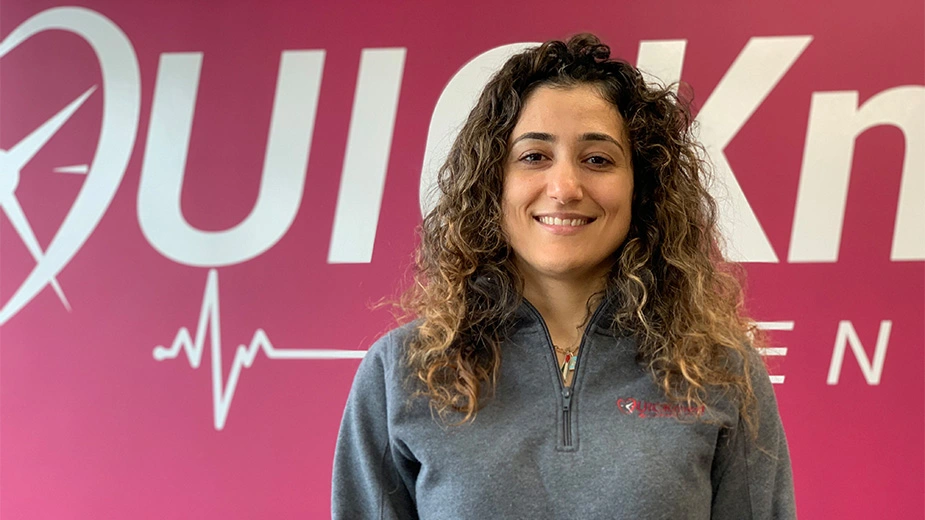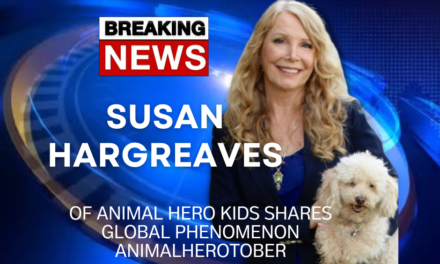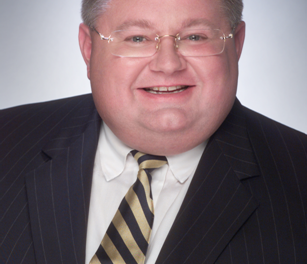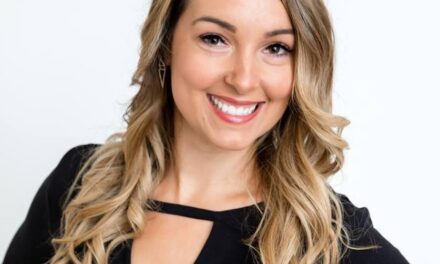Lena Esmail is a visionary healthcare leader and the driving force behind QuickMed, where she serves as CEO. Founded in 2018, QuickMed has rapidly become a key player in expanding healthcare access to underserved and rural communities in Ohio and beyond. With a deep understanding of the barriers to healthcare access, Lena has crafted a model that combines advanced practice providers and telemedicine to deliver essential medical services where they are most needed.
Lena’s educational background includes a dual Bachelor’s in Nursing and Biology from Youngstown State University, a Master’s in Family Practice Nursing from Ursuline College, and a Doctorate in Nursing Practice from Kent State University. Her academic foundation, coupled with her frontline experience in healthcare, inspired her to address the gaps she witnessed in underserved areas.
Under Lena’s leadership, QuickMed has been instrumental in launching innovative initiatives, including in-school clinics that offer comprehensive healthcare to students in disadvantaged communities. Her commitment to health equity and improving patient care has not only garnered the respect of her peers but has also positioned QuickMed as a leading healthcare provider in the region.
Lena’s forward-thinking approach and relentless dedication to healthcare innovation continue to shape the future of community healthcare. Her work is defined by a passion for problem-solving and a hands-on leadership style that empowers her team to bring transformative healthcare solutions to life.
What inspired you to transition from a career in nursing and academia to entrepreneurship?
The inspiration came from seeing the gaps in healthcare access, particularly in rural and underserved communities. While I loved being a nurse and later working in academia, I kept encountering situations where the system wasn’t working for those who needed it most. I wanted to create something that could address those issues on a larger scale. Entrepreneurship seemed like the best way to take action and make a real difference in improving healthcare access. It was about turning frustration into innovation.
What was the biggest challenge you faced during that transition?
Shifting from a clinical, academic environment to the business world was a huge leap. The biggest challenge for me was learning how to think like an entrepreneur. In nursing and academia, I was very focused on patient care and education, but entrepreneurship required me to think about things like operations, finance, and scalability. There’s a steep learning curve, but I approached it the same way I approached my nursing education—by diving deep, asking questions, and never being afraid to admit what I didn’t know.
How did your background in nursing help shape your approach to entrepreneurship?
Nursing is about problem-solving, compassion, and working under pressure—all of which are essential skills in entrepreneurship. My experience in nursing taught me how to listen to people, understand their needs, and make decisions that would improve their outcomes. It also made me adaptable and resilient, which are crucial in the entrepreneurial world. Healthcare is unpredictable, and so is business, so that ability to remain calm and focused has been a huge asset.
How did you handle the fear of leaving a stable career for the uncertainty of entrepreneurship?
That fear is real, and it was something I grappled with when I first decided to leave a more predictable career path. But I realized that the fear of staying stagnant was greater than the fear of failure. I kept reminding myself that the potential impact I could have through entrepreneurship was worth the risk. There were moments of doubt, but I’ve always believed that taking calculated risks is part of the growth process. Surrounding myself with a supportive team and mentors helped me stay grounded and focused on the bigger picture.
What advice would you give to others considering a similar transition from a traditional career to entrepreneurship?
My biggest piece of advice is to prepare yourself mentally for the challenges, but don’t let them hold you back. The transition isn’t easy, but it’s incredibly rewarding if you believe in your mission. Build a strong support system, whether that’s a mentor, colleagues, or family members, and don’t be afraid to seek advice. Also, never stop learning. Just because you’re an expert in one field doesn’t mean you can’t learn new skills for a different career path. Flexibility and a willingness to adapt are key.
Looking back, do you think your career in nursing and academia gave you an edge in your entrepreneurial journey?
Absolutely. Nursing and academia gave me a unique perspective on human-centered care and the importance of education. I wasn’t just starting a business for profit—I was building something that could solve real problems and improve lives. Those experiences shaped how I approached leadership, teamwork, and innovation. I think having that foundation of care and community-oriented work gave me an edge because I was always focused on making a meaningful impact, not just financial success.




